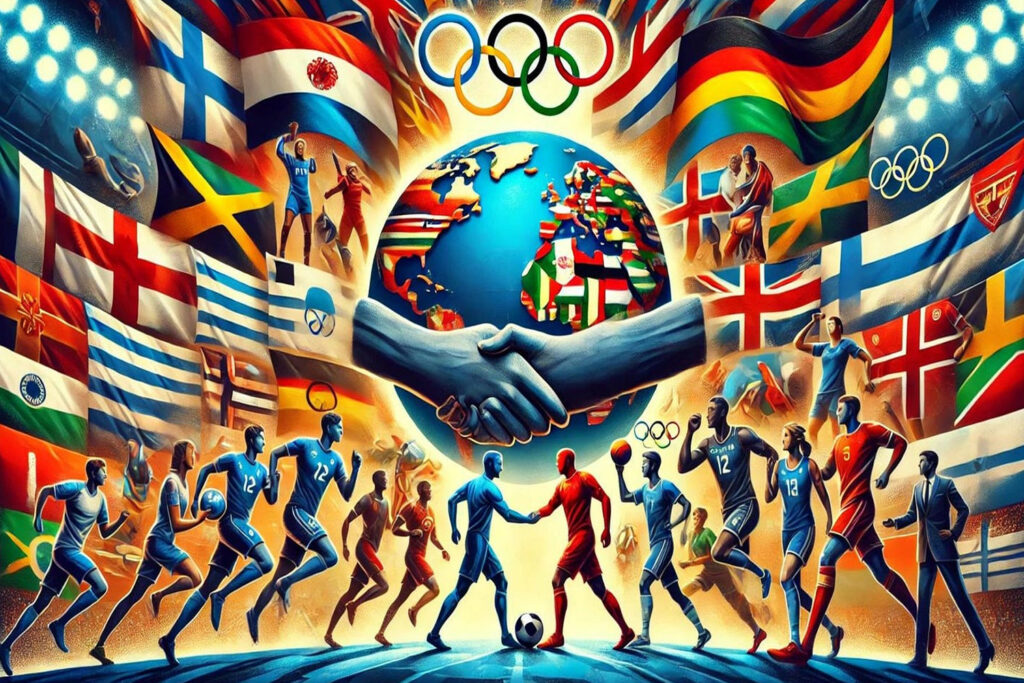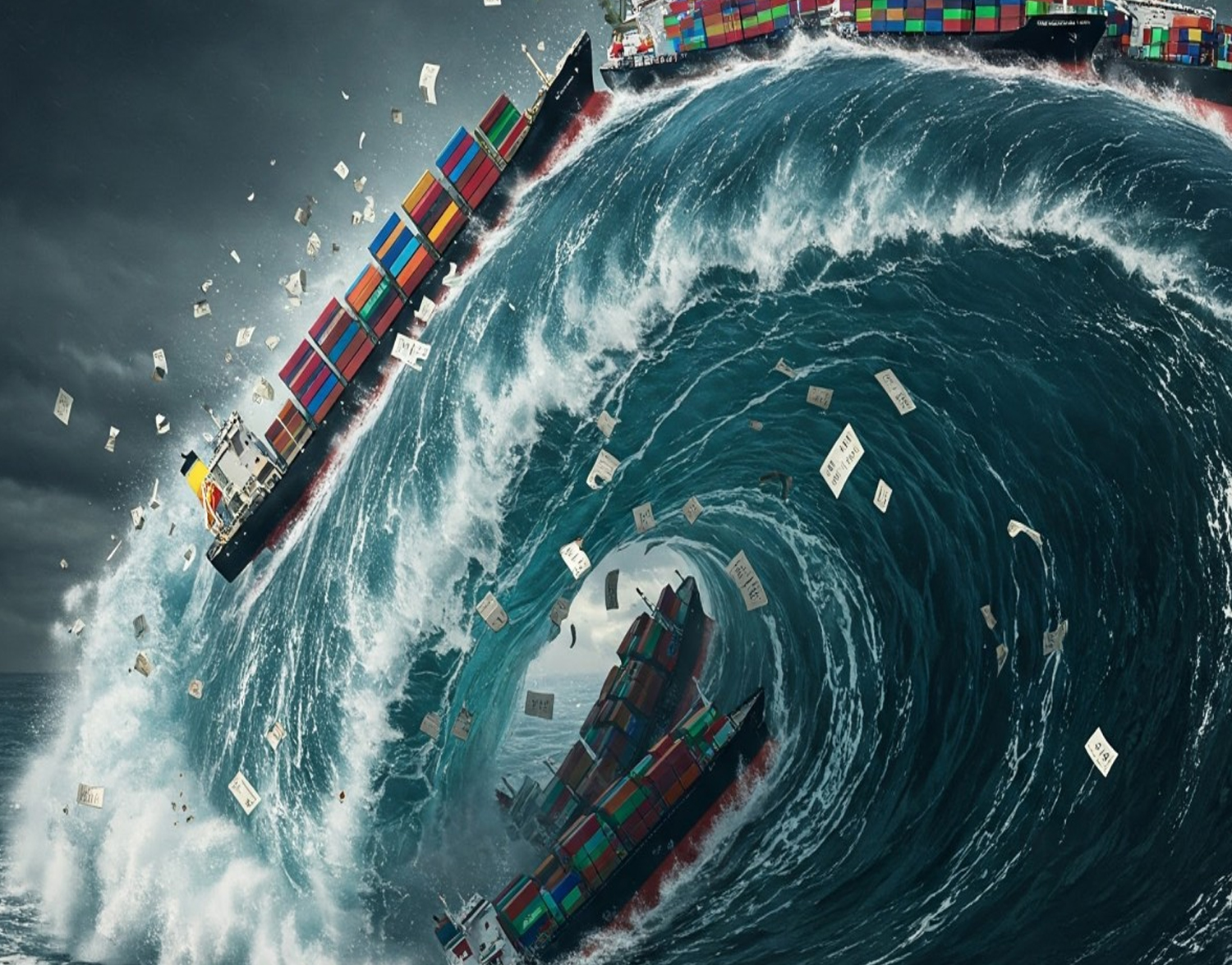Tariff Tsunami and the Shaking of Global Trade
The United States, under President Donald Trump’s administration, has introduced sweeping tariffs—the most aggressive since the 1930s. Rates range from 10% to over 40% and affect more than 60 countries, including key economies in Asia, Africa, and South America.
The measures are designed, according to the administration, to protect American industries and pressure trading partners into more favorable deals. But the global response has been swift and wary. Nations impacted by these tariffs have warned of job losses, inflationary pressures, and disrupted supply chains.
The move has strained diplomatic ties, especially with the Global South, where several countries are now exploring deeper economic cooperation with alternative blocs such as BRICS. Trade experts predict that if the tariff war escalates, it could significantly reshape global commerce for the next decade.
Global Sports and Cultural High Points
Even amid political and economic tension, global events continue to offer a sense of unity and celebration. The World Games 2025 opened this week in Chengdu, China. The multisport event, running until mid-August, features more than 250 competitions in disciplines outside the Olympic program. For China, hosting the Games is both a showcase of sports diplomacy and an opportunity to promote emerging athletic fields.
Later this month, Thailand will host the Women’s Volleyball World Championship for the first time in history. Expanded to include 32 teams, the tournament is a major milestone for Southeast Asia’s role in global sports and is expected to draw significant international attention.
In the entertainment world, South Korea is preparing for the International Streaming Festival, which will include the Global OTT Awards. The event underscores Asia’s rising influence in shaping global digital content trends Meanwhile, the Edinburgh Festival Fringe is in full swing, offering an unmatched variety of theater, comedy, and performance art. Drawing artists and audiences from across the globe, the festival continues to affirm the power of creativity in bridging cultural divides.
GLOBAL AFFAIRS TODAY…
Humanitarian Crises and Conflict Zones
Not all corners of the globe are celebrating. Several regions remain gripped by conflict and humanitarian strain. In the Sahel, fighting continues to displace communities, fueling food insecurity and regional instability. The Kivu conflict in the Democratic Republic of Congo shows no sign of resolution, while Cameroon’s Anglophone crisis remains tense. Somalia, Sudan, and Haiti face similar struggles, each compounded by political instability and fragile governance.
Gaza remains one of the most pressing humanitarian emergencies. Reports from aid workers describe hospitals on the brink of collapse, widespread shortages of food and clean water, and relentless cycles of violence. International appeals for humanitarian corridors and ceasefires continue, but with limited progress.
Oil Prices Dip as Demand Outlook Weakens
Energy markets have been quick to react to the global trade turbulence. Oil prices have experienced their sharpest weekly drop since June, with Brent crude sliding to the mid-\$60 range and U.S. WTI following closely. The decline is driven by two factors: uncertainty about demand in light of slowing global trade, and OPEC+’s decision to phase out production cuts sooner than expected. While lower oil prices may bring temporary relief to consumers, the instability is unsettling for oil dependent economies that rely on steady prices to fund public spending.
Looking Ahead: Uncertain Paths
The common thread running through today’s global affairs is uncertainty. Trade policies are rewriting the rules of engagement. Health systems face both funding shortfalls and technological revolutions. Cultural exchanges and sporting events provide temporary unity, even as conflicts continue to divide nations.
Perhaps the most pressing challenge for the months ahead is how global leaders will navigate these intersecting issues. The balance between national interest and international cooperation has rarely been more delicate. In an era where a tariff decision can ripple through oil markets, where health policy in one country can affect pandemic readiness worldwide, and where technology shapes both opportunity and inequality, the stakes are undeniably high.

Health Preparedness Under Threat
In the field of public health, concern is mounting over the U.S. decision to cut nearly half a billion dollars in funding for mRNA vaccine research. The move includes the cancellation of more than twenty federal contracts that supported both pandemic preparedness and medical innovation in areas such as cancer treatment.
Critics warn that this decision could slow global scientific progress, weaken the world’s readiness for future outbreaks, and erode trust in international health cooperation. Many scientists stress that mRNA technology has been one of the most important medical advances of the last decade, and losing momentum now could have long-lasting consequences.
Hiroshima Day: A Sobering Anniversary
On August 6, the world marked the 80th anniversary of the atomic bombing of Hiroshima. Ceremonies were held to honor the lives lost and to reaffirm global calls for nuclear disarmament. Survivors, now fewer in number each year, shared personal accounts that served as stark reminders of the human cost of nuclear warfare.
The anniversary comes at a time when nuclear tensions are again part of global security discussions, underscoring the relevance of Hiroshima’s legacy in shaping diplomatic priorities
Technology and Geopolitical Shifts
Technological advances—especially in artificial intelligence—are increasingly influencing geopolitics. Nations are racing to secure leadership in AI, not only for economic advantage but also for strategic and security purposes.
The recent BRICS summit in Rio de Janeiro placed AI governance high on its agenda. Leaders called for inclusive global regulations to ensure the technology serves public good rather than deepening inequalities. Industry experts warn that without coordinated governance, the AI landscape could fragment into competing spheres of influence, much like the Cold War divisions of the past.
AI is also driving shifts in industry, with automation, data analytics, and generative technology reshaping labor markets. Countries with advanced infrastructure and adaptable workforces are likely to benefit most, while others risk being left behind.
August 2025 is a month of contrasts. There is celebration—in sports, in culture, in human achievements that reach beyond borders. There is progress—in technology, in space monitoring, in moments of diplomatic dialogue. But there is also hardship—in humanitarian crises, in economic uncertainty, and in the deepening divides of global politics.
The story of today’s world is one of movement. Nations are recalculating alliances, industries are evolving under the weight of innovation, and communities everywhere are finding ways to adapt. It is a reminder that while the headlines may shift daily, the underlying currents of change are constant. And in that movement lies both challenge and possibility—the very essence of global affairs in
our time.
Eyes on the Skies: An Asteroid’s Close Call
Earlier this week, a near-Earth asteroid measuring roughly 170 feet across made a close approach to our planet. While there was no risk of collision, its passage serves as a vivid reminder of Earth’s vulnerability to space hazards.
Space agencies are using this event to call for stronger planetary defense systems, more international cooperation on space monitoring, and investment in early-warning technologies. For now, it’s another case of a close pass that fuels both scientific curiosity and public fascination












